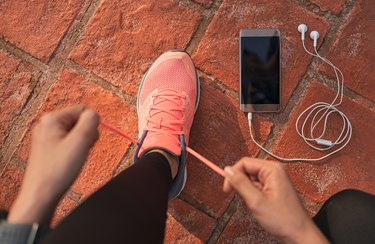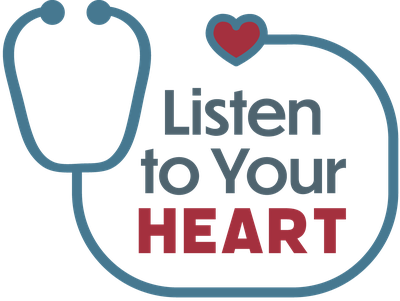
They say prevention is the best medicine, and that mantra certainly rings true when it comes to high blood pressure.
Startlingly, close to half of Americans have high blood pressure, or hypertension, according to the Centers for Disease Control and Prevention (CDC). Because it's so common, you might be tempted to think it's no big deal, but high blood pressure is actually linked to the two leading causes of death in the United States.
Scary, for sure. But there are ways to nip the condition in the bud. Here's what to know about how to prevent high blood pressure.
The Health Risks of High Blood Pressure
A healthy blood pressure is anything below 120/80 mm Hg, according to the CDC. Hypertension, on the other hand, is defined by a systolic blood pressure (the top number) of 130 or higher or a diastolic reading (the bottom number) of 80 or higher.
Having high blood pressure affects almost every single organ in your body, according to the American Heart Association (AHA), because it increases how hard your cardiac system has to work.
Over time, increased pressure in your arteries damages them — stretching them out and putting them at risk for hardening, tearing or leaking, says Nicole Weinberg, MD, a cardiologist at Providence Saint John's Health Center. High blood pressure can also lead to blood clots and an accumulation of LDL, the "bad" cholesterol.
The most serious risks of hypertension, though, are stroke, heart attack, kidney failure, eye damage and dementia, Scott Jamison, MD, a functional and internal medicine physician with PALM Health, tells LIVESTRONG.com.
"Not everyone can feel elevations in their blood pressure," Dr. Weinberg tells LIVESTRONG.com. "This is why it is known as the 'silent killer,' because you can have elevated blood pressure for years without knowing it. During that time, blood vessels and organs are accommodating these changes. By the time it is diagnosed, damage may have already occurred."
Tip
Scheduling regular checkups is a key way to keep tabs on your blood pressure. If you have elevated or high BP, your doctor will be able to diagnose it and help you devise a treatment plan that can help you bring your numbers into a healthy range.
Who’s at Risk for High Blood Pressure?
Certain types of medical conditions, such as kidney disease and diabetes, increase the risk of having high blood pressure, and some populations also have a higher risk, according to the National Heart, Lung and Blood Institute (NHLBI), including:
- African-American adults
- Men under age 55
- Women over age 55
- Elderly individuals
Genetics play a significant role, too, but working on the factors you can control — excessive weight, dietary issues, lack of exercise — is still incredibly important.
"Generally speaking, it is thought that genetics represent about a 30 to 50 percent role and environmental or lifestyle factors affect 50 to 70 percent of the basis for hypertension," Dr. Jamison says.
In a nutshell, that means if you're at risk for hypertension or already have high blood pressure, you can absolutely work to lower your numbers and live a healthier life.
Tweak Your Diet to Prevent High Blood Pressure
Nutrition plays a key role in your blood pressure numbers and overall heart health. Below are some of the most important ways that you can lower your risk of high blood pressure through what you eat.
1. Watch Your Sodium Intake
One of the biggest links between high blood pressure and the food you eat is the amount of sodium it contains, according to the NHLBI.
Highly processed foods and other foods high in sodium can raise blood pressure. That's why the 2015-2020 Dietary Guidelines for Americans recommend consuming less than 2,300 milligrams of sodium per day, which is equivalent to about 1 teaspoon per day (that's a lot less than you might think, right?).
"If our daily intake consists primarily of processed foods, then we are likely consuming more sodium than recommended," Victoria Nieveen, RD, LDN, a dietitian with PALM Health, tells LIVESTRONG.com. "When there is excess sodium in your blood, your blood vessels retain more fluid, leading to greater pressure against your artery walls."
If you're trying to watch your sodium levels, you should avoid the "Salty Six" from the AHA, which are:
- Breads and rolls
- Pizza
- Sandwiches
- Cold cuts and cured meats
- Soup
- Burritos and tacos
Related Reading
2. Follow the DASH Diet
The DASH diet, which stands for Dietary Approaches to Stop Hypertension, as well as the Mediterranean diet, are both known to help reduce high blood pressure and promote heart health, especially when combined with other heart-healthy steps like reducing alcohol consumption, lowering stress levels and maintaining physical activity, Nieveen says.
Both forms of eating focus on foods that are plant-based, like fruits and vegetables, along with nuts, seeds, legumes and whole grains. They also include low-fat and nonfat dairy, lean meats, fish, poultry and heart-healthy fats, such as olive oil.
3. Focus on Whole Foods
There aren't necessarily any "magic" foods that will directly lower blood pressure, Nieveen says, but focusing on minimally processed whole foods like fruits, vegetables, whole grains, healthy fats, lean proteins and nuts or seeds will all support heart health.
"Many of these foods, especially fruits and vegetables, are rich in potassium, which helps to prevent high blood pressure," she says. "Substituting these foods for processed foods may help lower blood pressure in people with hypertension."
Related Reading
4. Aim for Two Servings of Dairy a Day
Eating at least two daily servings of dairy is linked to a lower risk of high blood pressure and diabetes, according to a study published May 2020 in BMJ Open Diabetes Research & Care.
The observational study, which included nearly 150,000 people from 21 countries, found that hypertension was less likely in people who regularly ate milk, yogurt, yogurt drinks, cheese and dishes prepared with dairy products (but not butter or cream).
5. More Tips for a Heart-Healthy Diet
According to Nieveen, you can also follow some general guidelines for a heart-healthy diet:
- Avoid trans fats and limit saturated fat
- Choose unsaturated fats, such as nuts, seeds and olive oil
- Include lots of dietary fiber from foods like fruits, vegetables, legumes and whole grains
- Consider adding in sources of heart-healthy omega-3 fatty acids like fish (the AHA recommends two servings of fish per week), walnuts or ground flaxseeds
- Follow the American College of Cardiology's recommendations for a Mediterranean-like diet high in vegetables, fruits, nuts, whole grains, lean vegetable or animal protein (especially fish), legumes, healthy fats and oils
Get Regular Exercise to Hamper Hypertension

Exercise has a direct, immediate impact on blood pressure. "The increase in nitric oxide in one's system from exercise causes vasodilation, which lowers blood pressure," Dr. Weinberg says.
What's more, regular moderate-to-vigorous physical activity is associated with lower cardiac events and mortality, according to the American College of Cardiology's 2019 ACC/AHA Guidelines on the Primary Prevention of Cardiovascular Disease.
"One of the most impactful lifestyle changes you can make to lower your blood pressure is exercising 30 to 60 minutes a day," says Sanjiv Patel, MD, interventional cardiologist at MemorialCare Heart & Vascular Institute at Orange Coast Medical Center.
Warning
Although incorporating exercise into your daily routine can be beneficial for blood pressure, always be sure to speak with your doctor before starting an exercise regimen, especially if you have any other medical conditions, to ensure that the activity you're choosing is safe.
Based on the American College of Cardiology's recommendations for heart health, you should get at least 150 minutes per week of moderate-intensity or 75 minutes per week of vigorous-intensity physical activity, being sure to include resistance exercise.
"A combination of both an aerobic exercise like running, jogging, fast walking or swimming, in combination with low-weight, higher-repetition exercise is a great way to reduce blood pressure," Dr. Patel says.
Other Lifestyle Tips to Control Blood Pressure

1. Reduce Your Stress
One of the most important things you can do to reduce your blood pressure is to decrease the amount of stress in your life, and learn to manage the stress that you do have. As an October 2019 study in the Journal of the American Heart Association found, both chronic stress and perceived stress is highly associated with high blood pressure, especially in African-Americans.
Healthy ways to manage stress include meditation, yoga, walking in nature, visualization techniques and using essential oils.
Meditation, especially, may be helpful. According to a March 2019 paper in the Journal of Human Hypertension, mindfulness meditation was effective in clinically lowering blood pressure.
Related Reading
2. Manage Your Weight
Maintaining a healthy weight can help lower blood pressure, Dr. Weinberg says. Being overweight increases the amount of blood your body must circulate, which increases strain on the arteries.
In fact, losing just a few pounds can have a positive effect on your blood pressure.
3. Get Better Sleep
Dr. Patel tells LIVESTRONG.com that disrupted sleep from insomnia, stress or sleep disorders can also affect high blood pressure.
Sleep apnea especially can also contribute to blood pressure, Dr. Weinberg says, so if you are experiencing any symptoms of sleep apnea, listed by the National Sleep Foundation as chronic snoring, difficulty concentrating, falling asleep during the day and irritability, be sure to visit a doctor so you can get help with managing your sleep apnea symptoms to reduce your risk of complications.
Related Reading
Other lifestyle tips that can help you lower or manage your blood pressure include:
- Reduce alcohol to the CDC's recommendation of no more than one drink per day for women and no more than two drinks per day for men
- Don't smoke or use tobacco products
- Reduce caffeine consumption
How to Take Your Blood Pressure at Home
If your doctor has advised you to monitor your blood pressure at home, Dr. Weinberg and Dr. Patel recommend the following steps:
- Always use an automatic cuff that goes around your arm, not on your wrist.
- The cuff should be about 2/3 the length of your upper arm.
- Place the blood pressure cuff on the arm and rest for 5 minutes while seated.
- Rest your arm at heart level.
- Press the start button on the machine and wait until the cuff is relaxed at the end.
- If you get an elevated reading, try some relaxation methods, such as deep breathing, watching TV or reading a book.
- Recheck blood pressure again an hour later.
Warning
If your blood pressure is greater than 180 mm Hg or you are experiencing any concerning symptoms, such as double vision or headache, you should call your medical provider or seek medical attention immediately.
Is this an emergency? If you are experiencing serious medical symptoms, please see the National Library of Medicine’s list of signs you need emergency medical attention or call 911.
